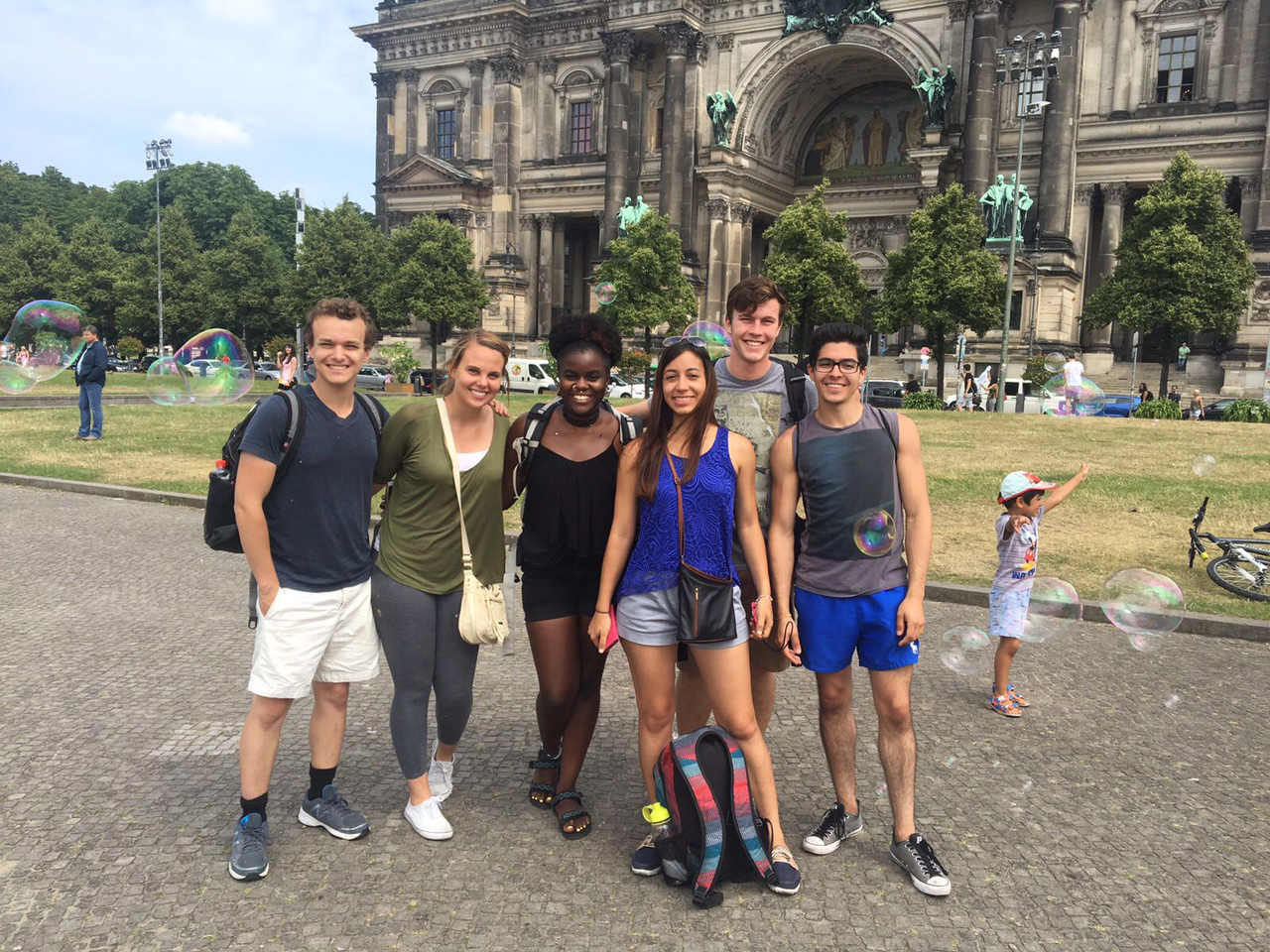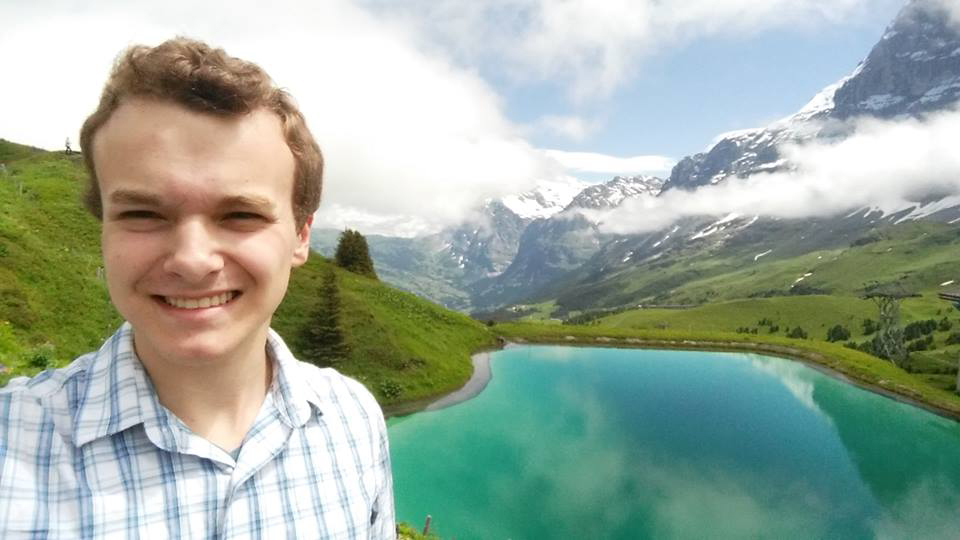Undergrad travels to Europe for summer research experience
By Tom Fleischman

Adam Berry ’18 spent part of his summer vacation performing theoretical quantum mechanical calculations in an attempt to predict a wide variety of potential electrolytes for magnesium oxide energy storage devices.
Doesn’t sound like vacation? Well, he also took in a France vs. Germany soccer match – in the home country of one of the teams.
Berry, a chemical and biomolecular engineering major, was one of 16 students chosen from a nationwide pool of 240 to take part in an International Research Experience for Undergraduates (IREU), sponsored by the American Chemical Society. Berry spent 10 weeks at Ulm University in Germany.
The program sends students to Singapore, Germany, Italy and the United Kingdom to work in foreign research labs and conduct short-term research projects. Participants are taught the importance of communication. They learn how to connect with foreign scientists about their work and to communicate with the public about the importance of science.
The work, and the setting, made for an unforgettable 10 weeks for the Ramsey, New Jersey, native.
“Being in Europe for 10 weeks was obviously a great experience,” Berry said. “Science is done a little differently there, in certain ways, at least on the research side of things. There’s more of a work-life balance, at least in Germany, where they work 9 to 5 typically and don’t go in on weekends. That’s pretty unprecedented here.”
Berry learned he was selected in mid-March. His journey started two months later with an orientation program – “in the middle of finals week,” Berry said with a smile – in Washington, D.C. He left for Germany at the end of May and spent a few days getting acclimated to the time change before starting work June 1.
His interest in energy storage devices is mainly centered on lithium battery technology, and he expressed that interest in applying for the IREU. To his surprise, he was sent to Ulm and placed in the lab of Timo Jacob, professor of electrochemistry, to research magnesium battery development. Magnesium is of interest for its superior abundance and higher energy density than lithium.

“I’ve always been interested in alternative energy, batteries, energy storage, and it was really interesting working with the magnesium battery system, a technology that I most likely would not have [had experience with] otherwise.”
In addition to the IREU cohort, Berry spent some time with students from the German Academic Exchange Service, a private collective of higher education institutions that promotes international academic relations. They traveled on the weekends, and took in the Euro Cup match on July 7, watching on an outdoor screen in Ulm with a decidedly pro-Germany crowd.
“That was a lot of fun, although France won, so it got less fun at the end. But it was a good way to bond with the lab,” he said.
Berry and his friends did a lot of traveling by train, and even flew to a couple of places thanks to extremely low fares. “I got one flight for 16 euros (approximately $18),” he said. “It’s great, so I’m a little envious of people who live in Europe.”
Although much of his lab work involved “staring at a command prompt” on the computer, he fully enjoyed his time abroad.
“I wasn’t sure I would be able to handle going over to Germany without knowing too much German, but a lot of people in my lab spoke English, so that made it easier,” he said. “And from a scientific standpoint, probably what blew me away most was that I didn’t think I’d enjoy both computational theoretical work and working with magnesium batteries as much as I did.”
The IREU program is supported by the National Science Foundation.
Media Contact
Get Cornell news delivered right to your inbox.
Subscribe